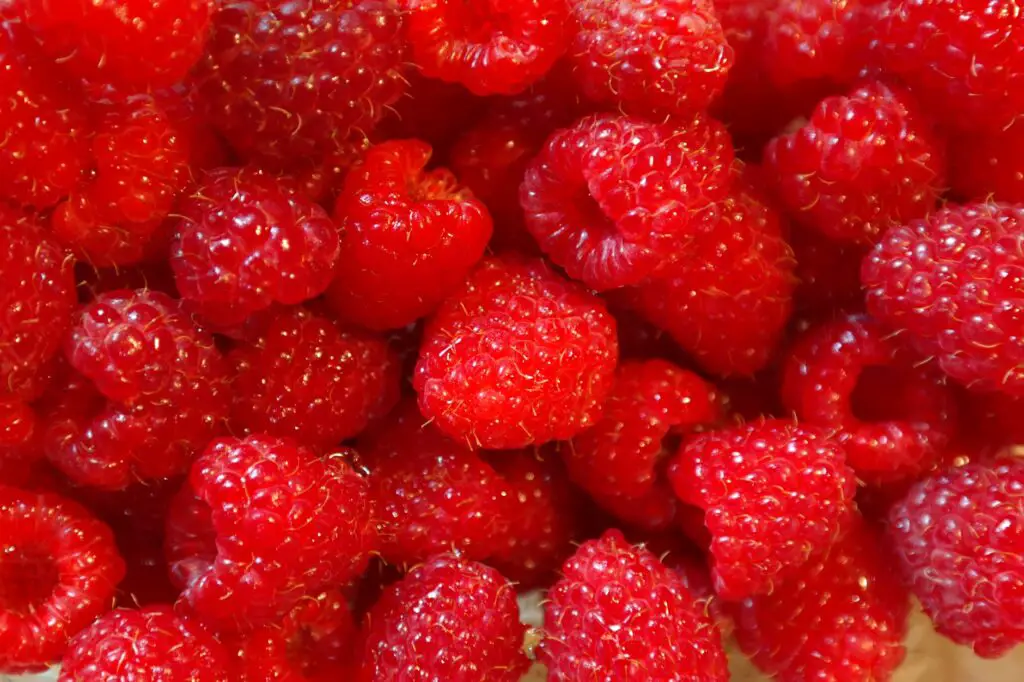Our dog has a big appetite.
There’s a running joke in our house that he’ll eat anything (even the cat’s biscuits). When we first had him, we didn’t realise how careful we’d need to be about leaving certain foods out in our kitchen. We’d always thought that the biggest dangers were the ones outside the home: cars, other dogs, predators, illness or injury. We’ve even considered balconies. We had no idea how many potential dangers were lurking in our food cupboards.
What’s worse is that our dog has a sweet tooth. He can sniff our sugary treats from fifty paces. He’s pretty good at sneaking around and sticking his tongue into plates and jars when we’re not looking. We’re a lot more careful now.
As always, we’re not veterinarians. This article is based on research and our own experience. If you have any concerns or questions, you should speak to an animal professional 😊
Some human foods are fine for dogs to eat in moderation. Others may cause an upset stomach. Some things can kill quickly. We’ve written before about how canary melon fruit is fine or strawberry leaves are fine for dogs. What’s worrying is that some ingredients aren’t always clear until you study the food label. Sometimes these ingredients can be harmful.
Xylitol and ethanol, for example.
Greedy dogs can also get dog bloat. That’s something that can kill. We had no idea. We now check everything that comes into the house. We want to know which foods could cause harm.
Can Dogs Eat Raspberry Jam?
We need to break this down into two things: the fruit itself and then the other ingredients.
Firstly, dogs can eat raspberries. The American Kennel Club says that raspberries are fine in moderate amounts.
The fruit is fine.
It’s the added ingredients that can cause problems. Always check the ingredients before you give your dog anything.
Xylitol
The big ingredient to watch out for and avoid is xylitol. Xylitol is a sugar substitute.
Even a small amount can kill a dog.
It’s commonly found in some low-sugar and sugar-free products. Things like jams, jellies and peanut butter. It’s also used in chewing gum. Xylitol causes dogs to become hypoglycaemic and it can also cause liver failure. Dogs only need to ingest a small amount of xylitol to become ill. Once that’s happened, time is of the essence and quick veterinary attention is vital.
Xylitol is popular because it’s seen as a healthier alternative to sugar. Keep any raspberry containing xylitol sealed and on a high shelf and away from your pets.
It’s worth mentioning that raspberries do contain naturally occurring xylitol. The dose is small enough that a dog would have to eat a large amount to get sick. So long as you supervise fresh raspberry consumption, there shouldn’t be a problem.
Sugar
Jam and jellies also contain a lot of sugar. Dogs that consume too much sugar can develop chronic health conditions. These may include diabetes, obesity, and heart disease. Too much sugar is bad for your dog’s teeth, too. Remember, you’re the one paying the veterinary bills.
Sweeteners
There are other sweeteners in a raspberry jam that can cause problems. Whilst stevia and aspartame aren’t toxic to dogs, they can cause an upset stomach. Something that’s about as unpleasant for the owner as it is the dog. Pectin is another ingredient to look out for. It’s not toxic to dogs but veterinarians use it to treat diarrhoea. As a result, pectin can cause constipation in dogs which can create its own problems.
There’s no nutritional benefit in raspberry jam.
Dogs are better off eating fresh raspberries as they are high in fibre and vitamin C. They also reduce the risk of cardiovascular disease and dementia. Once the fruit has been processed and made into jam, the benefits disappear.
If your dog has raspberry jam as a treat, we’d suggest switching to handfuls of fresh raspberries. We sometimes give our dog fresh raspberries mixed into plain Greek yoghurt. Although, you’ll need to check the ingredients for xylitol in yoghurt, too. You could also look into other snacks designed to support a dog’s wellbeing as well as providing a treat.
Of course, it’s easy to say that raspberry jam should be stored safely out of reach. But what about when we put our piece of toast down and the dog takes a bite when we’re not looking? Or what about when our pup sticks a wet snout in the open jar just as we’re distracted by a knock at the door?
These things happen.
The first thing to do is check the ingredients. Xylitol means an immediate trip to the veterinarian. Otherwise, take the jar away and keep an eye on the dog for a few hours. Some dogs have a more sensitive stomach than others. For most dogs, a little bit of jam now and then shouldn’t be a problem.


